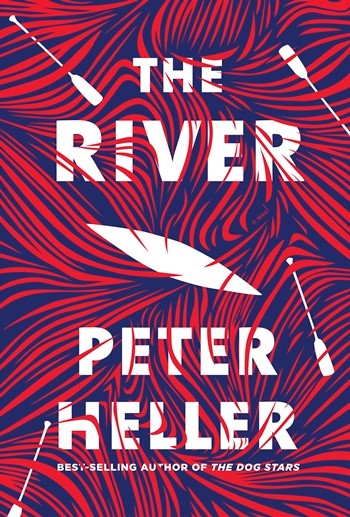
Peter Heller’s novel “The River”, about two Dartmouth College students on a canoe trip gone badly awry, is partly an ode to the Northern wilderness, partly a survival how-to, and mostly a thriller — suspenseful and gut-wrenching.
Best friends Wynn and Jack take a late-summer trip to Canada, paddling down a river that winds through lakes and over rapids on its way to Hudson Bay. Like the river, Heller’s plot often takes its time, digressing to describe how the boys fillet a fish or make camp, or what the Northern Lights look like. But don’t get lulled: There’s action around the bend.
The two friends, both country boys, are experts in the woods and on the water, where they are self-proclaimed “minimalists” — no phones, no frills. They also share “a literary way of looking at the world,” and frequently see it through the lenses of Edgar Allan Poe, Virgil, James Dickey and more.
Their leisurely trip turns into a harrowing dash toward safety when both nature and other people turn violent. Nature dishes up a massive forest fire that bears down on them. The boys smell and hear the blaze long before they see it — the fleeing animals, the drifting smoke, the popping and hissing of trees.
Meanwhile, human mysteries lurk: Wynn and Jack hear a man and woman arguing on the bank as their canoe glides by in the fog; when they return to warn the couple about the fire, they find nobody there. Later, a man turns up at their camp downriver, alone. Where is the woman?
Heller, author of previous novels including “The Dog Stars” and “Celine,” dives deep into the details of wilderness camping — so deep that sometimes you just want to jump ahead and find out what happens. Likewise with his acute and poetic observations of nature. But he is setting the scene and establishing two likable and memorable characters in Wynn and Jack. Each brings a different perspective to the violence and tragedy they encounter.
River travel has often been a metaphor for writers. At one point early on, as the boys approach some rapids, Heller writes that “every river story they had ever read was just beneath the surface of their imaginations and must have fired them with extra energy and braced them, too, because at least half of those stories did not have happy endings.” (AP)
 |
 |
 |





